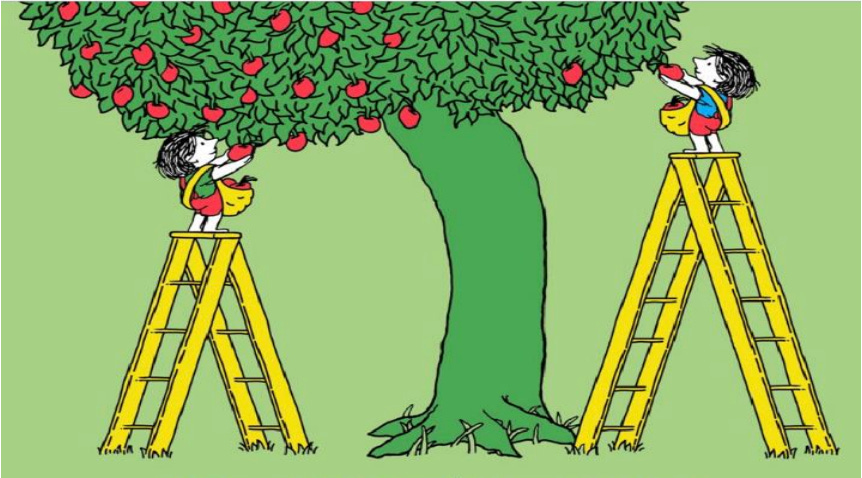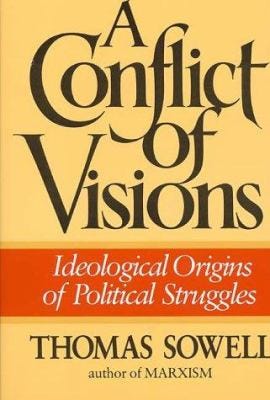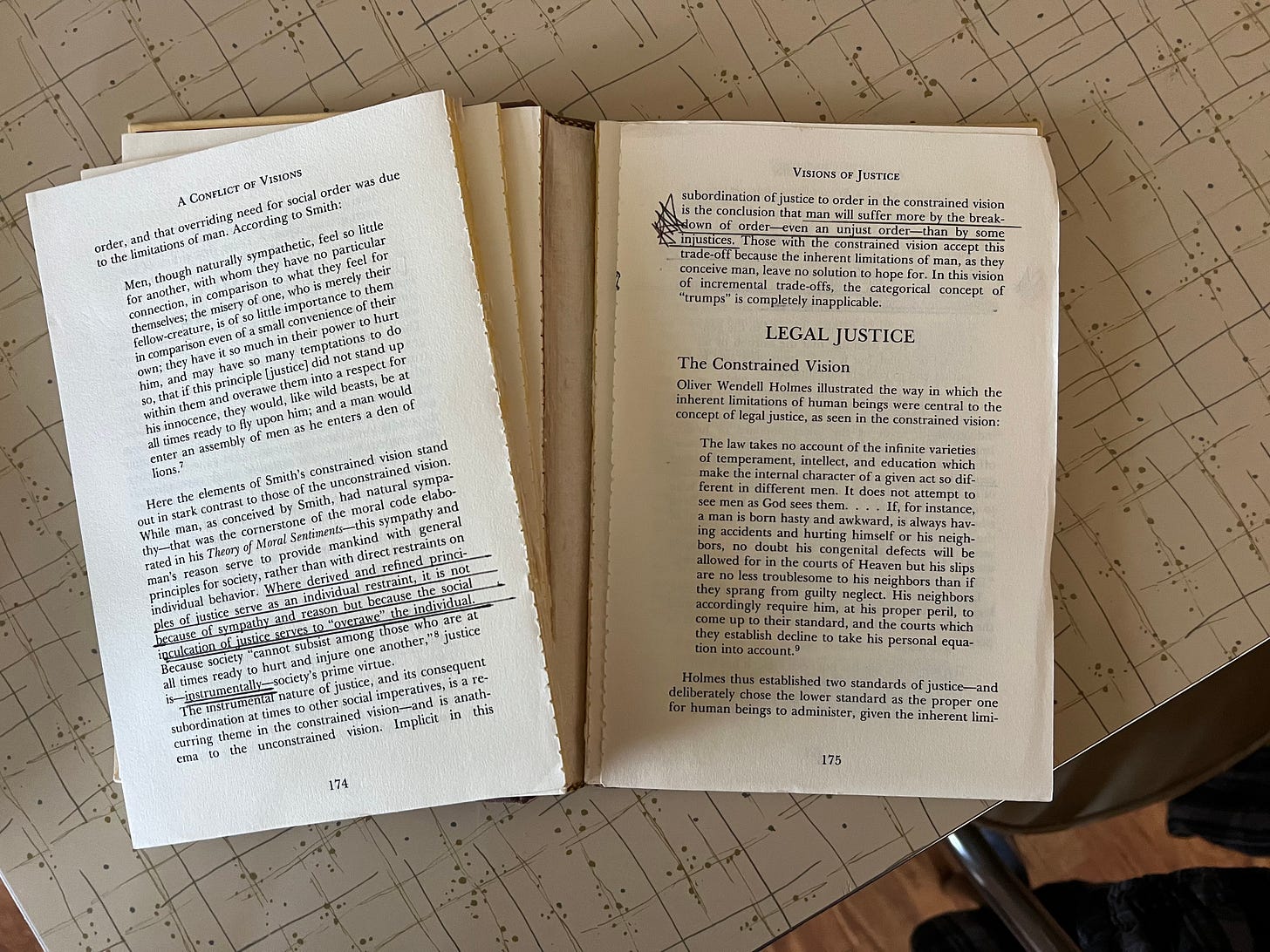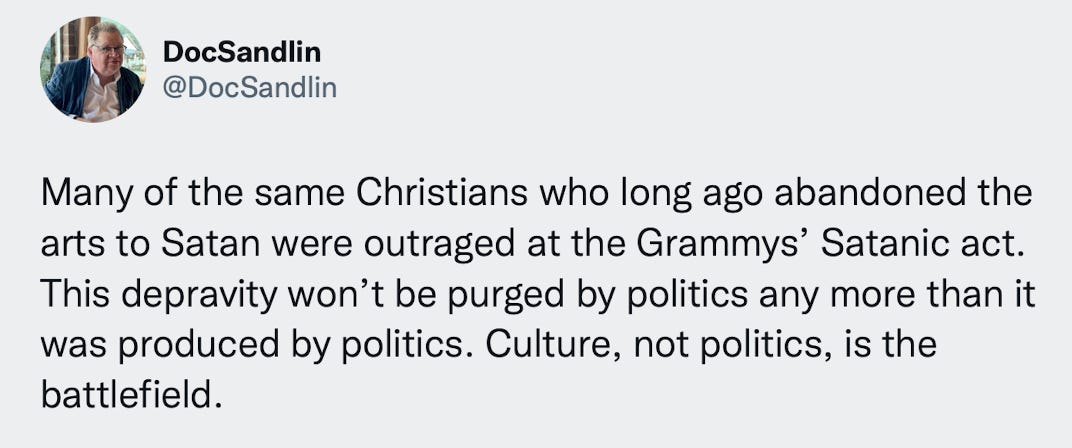Leftist “Equity” Versus Biblical Equality
Any idea of equality that demands uniform results is an attack on God’s law; on individual liberty; and, if carried to its “equitable” conclusion, on reality itself.
Dear friends and supporters,
The University of Michigan and several other bastions of public higher education made headlines recently for their high number of high-paid (well into six figures) employees in the DEI department. What’s DEI, you ask? Well, you silly uneducated rube, it’s the acronym for “diversity, equity and inclusion,” the moralizing trio of enforced social justice in education and workplace, and it’s so vital that it requires an army of handsomely paid enforcers.
Education in the West was once liberal education: training in language, history, math, philosophy, the sciences. “Liberal” meant education for the free, self-governing man or woman equipped to be a responsible human being in God’s world.
Today education is largely ideological indoctrination: purging traditional, hidebound students of such outrageous ideas that men can’t have babies, that treating all races equally under the law is unfair, and that there are only two genders. Geometry, the causes of the Civil War, and the law of gravity are trivial pursuits compared to politically correct justice, now known as wokeness.
Of that acronymic trio, equity is likely the most significant — and pernicious. The word has a perfectly benign history, but it has in recent years been vested with a new meaning and enlisted in the wokeness campaign. Before we can address modern equity, however, we need to discuss the related word and idea of equality, or more specifically, two distinct conceptions of equality.
Process Equality
Until modernity, equality was understood as equality of processes. This means that there’s a certain set of rules that everyone must, and agrees to, live by. There’s not one set of rules for one group (the powerful, the rich, kings), and another set of rules for another group (the marginalized, the poor, the commoners); the same rules apply to everybody. This is the biblical idea:
You shall do no injustice in judgment, in measurement of length, weight, or volume. You shall have honest scales, honest weights, an honest ephah, and an honest hin [ancient measures]: I am the Lord your God, who brought you out of the land of Egypt. (Leviticus 19:35–36)
You shall do no injustice in judgment. You shall not be partial to the poor, nor honor the person of the mighty . In righteousness you shall judge your neighbor. (Leviticus 19:15)
You shall have the same law for the stranger and for one from your own country; for I am the Lord your God.’ ” (Leviticus 24:19–22)
Different people, stations, nations, circumstances — same rules.
If a Bronx high school recruited the New York Yankees to play them in a charity fundraiser, and if the umpires called the game fairly, and if the game ended with the Yankees winning 22–0, the game itself was fair, because the rules equally applied to everybody. The fact that the Yankees are professionals, obviously a far superior team, has no bearing on issues of equality or fairness. The game is fair because the rules are equally applied. Nobody gets special treatment or mistreatment. In this process definition of equality, nobody gets to argue, “But these are just high school kids. It’s not fair.”
Bottom line: if the rules are the same for everybody, there’s no inequality (or unfairness).
Results Equality
But over the last 300+ years a new view of equality has emerged. This is the idea of equality of results. People are entitled not just to play by the same rules as everybody else; they must get the same benefits as everybody else. If not, they suffer inequality, injustice.
The most obvious historical example is wealth inequality. If everybody plays by the same rules in exchanging goods or services, some people will end up getting or owning much more than others. This is unequal and unfair. There must be an equalizing of how much people own or possess if there’s to be genuine equality.
Ironically in this demand for equality of processes the only way everybody gets basically the same result is if you rig the rules, so that some people can get more than others. You need to forcibly confiscate wealth from the have’s and give it to the have-not’s. In this way you trade away equality of processes to get equality of results.
In our charity baseball game metaphor, true equality could occur only if the Bronx high school team got five strikes per batter, was allowed five outs per inning, and their every run counted as two runs for every Yankees single run. You rig the processes in order to guarantee fair results.
The equity mavens will ask: “How is equality of process fair? The black child is starting out at the greatest disadvantage, and no amount of equal treatment under the law can be considered fair. What he really needs is a legal boost by government intervention to help him get to the same existential spot as the white child.”
The traditional understanding, and, more importantly, biblical understanding, of equality accounts for the basic fact that people have different gifts, talents, aspirations, motivations, diligence, and perseverance. Equality of processes recognizes this vital reality of the human condition: the most equal arrangement possible in a finite and fallen world is to create — or actually, in a biblical sense, recognize — a system of rules within which everyone must operate. Some will end up with more benefits, and some with less, but if everybody plays by the rules, it will benefit everybody, if in no other way than in securing stability. You can depend on the rules not to change with the person or circumstance.
Process equality never promises everyone will get equal results. But it does promise that everyone will be treated fairly, equally.
Equity versus Equality
This brings us back to the latest pinnacle of social justice nomenclature, “equity,” related, but not identical, to equality. In fact, it’s a subset of equality of results. The National Association of Colleges and Employers provides a helpful summarizing distinction:
The term “equity” refers to fairness and justice and is distinguished from equality: Whereas equality means providing the same to all, equity means recognizing that we do not all start from the same place and must acknowledge and make adjustments to imbalances. The process is ongoing, requiring us to identify and overcome intentional and unintentional barriers arising from bias or systemic structures.
Equity holds that the arrangement of “same rules for everybody” isn’t fair since the arrangement itself includes unfairness (“systemic”). Equal rules aren’t enough. You have to change the entire (unequal) system. Equity is not equality, because equality is not enough.
Equity might be superficially plausible, but it creates problems bigger than the ones it’s trying to solve. Take the example of a black child born into an impoverished, single-parent family. Now contrast him with a white child born into an upwardly mobile, wealthy, two-parent family. The equity mavens will ask: “How is equality of process fair? The black child is starting out at the greatest disadvantage, and no amount of equal treatment under the law can be considered fair. What he really needs is a legal boost by government intervention to help him get to the same existential spot as the white child.” That would be equity.
But this question betrays a remarkable reductionism. What if the single parent of the black impoverished child is hard-working and virtuous, full of personal ambition. And what happens if that parent inculcates these virtues into the child? Alternatively, what if the white child is born into an indulgent, irresponsible family that simply inherited (and squanders) its wealth? That child then will tend to lack the virtues and character necessary for a successful life. Is this absence of virtue “equitable” compared with the black child’s situation?
This is just one example of the most glaring problem with equity — we don’t know, can never know, sufficient factors to fairly equalize life conditions. Lots of people born into disadvantaged circumstances go on to far surpass contemporaries born into advantaged circumstances. And they didn’t need state interference to help them. In fact, perhaps state interference would have positively harmed them by creating a disincentive for personal character and effort.
Equity versus Reality
But the problems with equity are deeper. What about people who find themselves in a situation they did not create, which could not have been preempted by anyone, not even the state? This is true of every child born into the world, in fact. He didn’t choose his parents, his country, his color, his physical condition at birth — all this is simply a part of reality,
For this reason, in today’s world of overamped equity, reality itself must surrender. What about a girl born into a man’s world, particularly in Islamic countries. How unequal is that! What if this girl later believes that she’s actually a boy who has been trapped by her (his?) birth? She then might undergo (though probably not legally in an Islamic country) “gender modification surgery” for her life to be equitable.
This means, if we take it to its logical conclusion, that equity is a war on reality, that is to say, equity is a war on the sovereign, Creator God of reality. Reality is inequitable, so man must reengineer reality. This is likely the most graphic example of a doomed-from-the-start strategy one could imagine.
Conclusion
The biblical idea of equality is equality of processes, and any idea of equality that demands uniform results is an attack on God’s law; on individual liberty; and, if carried to its “equitable” conclusion, on reality itself.
Will you consider a tax-deductible donation to CCL via PayPal or Venmo? Or mail a check to CCL, Box 100, Coulterville, CA 95311. God uses you to keep us going — and expanding.
Yours for biblical equality,
Founder & President, Center for Cultural Leadership
Thomas Sowell on Equality
I learned the distinction between process equality and results equality from conservative Tom Sowell’s book A Conflict of Visions: Ideological Origins of Political Struggles. I read it in my mid-twenties, just after it was published, and few non-Christian books have had such a formative influence on my thinking. Aside possibly from Knowledge and Decisions, this is his magnum opus. Sowell argues that thinkers operate with different conceptions (“visions”), intuitive feelings about the world, deeper even than worldviews. He argues that three leading categories of sociopolitical topics (equality, power, and justice) are generally understood according to the (1) unconstrained vision (man’s capacity for self-improvement is nearly limitless, and thus social mishaps are a failure of will or even virtue), and the (2) constrained vision (man is finite and limited and thus cannot achieve all social improvements his imagination might desire). Modern progressivism and conservatism correspond roughly to these two visions.
This paradigm-creating and -shifting book is worth your most careful attention. My attention to it has been so intense that this is what my physical copy looks like now.
Join Me at the H. Evan Runner International Academy
Register here.
Tweet of the week
More great stuff:
The Center for Cultural Leadership site is here.
My Amazon author page (print and digital) is here.
My I-Tunes sermons, lectures and podcasts are here.
You can find my sermons and lectures at my YouTube channel.
Sign up to get my blog updates here.
Here’s my Twitter feed.
If you want to get the free exclusive hard copy publication Christian Culture, please send me a Facebook private message.
The CCL phone number is 831-420-7230.
The mailing address is:
Center for Cultural Leadership
P. O. Box 100
Coulterville, CA 95311










Yet another example of the cancer of malinvestment. With the federal government's takeover of student loans, legitimate lenders were absolved of risk, so fiat currency was pumped into the system like sludge. University profits went up. You gotta spend that money somewhere. May as well hire more DEI staff than actual professors. Heck, why even have professors? It's more important that students glean the ideology than any actual knowledge.
Right on, Steve. I think the equity mavens know this, and because they support statism, they know their view will create state-dependent people.